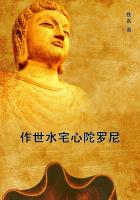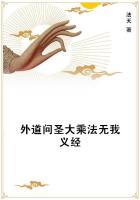Unfortunately, in the eighteenth century, reason was classic; not only the aptitude but the documents which enable it to comprehend tradition were absent. In the first place, there was no knowledge of history; learning was, due to its dullness and tediousness, refused;learned compilations, vast collections of extracts and the slow work of criticism were held in disdain. Voltaire made fun of the Benedictines. Montesquieu, to ensure the acceptance of his "Esprit des lois," indulged in wit about laws. Reynal, to give an impetus to his history of commerce in the Indies, welded to it the declamation of Diderot. The Abbé Barthélemy covered over the realities of Greek manners and customs with his literary varnish. Science was expected to be either epigrammatic or oratorical; crude or technical details would have been objectionable to a public composed of people of the good society; correctness of style therefore drove out or falsified those small significant facts which give a peculiar sense and their original relief to ancient personalities. -- Even if writers had dared to note them, their sense and bearing would not have been understood. The sympathetic imagination did not exist[9]; people were incapable of going out of themselves, of betaking themselves to distant points of view, of conjecturing the peculiar and violent states of the human brain, the decisive and fruitful moment during which it gives birth to a vigorous creation, a religion destined to rule, a state that is sure to endure. The imagination of Man is limited to personal experiences, and where in their experience, could individuals in this society have found the material which would have allowed them to imagine the convulsions of a delivery? How could minds, as polished and as amiable as these, fully adopt the sentiments of an apostle, of a monk, of a barbarian or feudal founder; see these in the milieu which explains and justifies them; picture to themselves the surrounding crowd, at first souls in despair and haunted by mystic dreams, and next the rude and violent intellects given up to instinct and imagery, thinking with half-visions, their resolve consisting of irresistible impulses? Aspeculative reasoning of this stamp could not imagine figures like these. To bring them within its rectilinear limits they require to be reduced and made over; the Macbeth of Shakespeare becomes that of Ducis, and the Mahomet of the Koran that of Voltaire. Consequently, as they failed to see souls, they misconceived institutions. The suspicion that truth could have been conveyed only through the medium of legends, that justice could have been established only by force, that religion was obliged to assume the sacerdotal form, that the State necessarily took a military form, and that the Gothic edifice possessed, as well as other structures, its own architecture, proportions, balance of parts, solidity, and even beauty, never entered their heads. -- Furthermore, unable to comprehend the past, they could not comprehend the present. They knew nothing about the mechanic, the provincial bourgeois, or even the lesser nobility; these were seen only far away in the distance, half-effaced, and wholly transformed through philosophic theories and sentimental haze. "Two or three thousand"[10] polished and cultivated individuals formed the circle of ladies and gentlemen, the so-called honest folks, and they never went outside of their own circle. If they fleeting had a glimpse of the people from their chateaux and on their journeys, it was in passing, the same as of their post-horses, or of the cattle on their farms, showing compassion undoubtedly, but never divining their anxious thoughts and their obscure instincts. The structure of the still primitive mind of the people was never imagined, the paucity and tenacity of their ideas, the narrowness of their mechanical, routine existence, devoted to manual labor, absorbed with the anxieties for daily bread, confined to the bounds of a visible horizon; their attachment to the local saint, to rites, to the priest, their deep-seated rancor, their inveterate distrust, their credulity growing out of the imagination, their inability to comprehend abstract rights, the law and public affairs, the hidden operation by which their brains would transform political novelties into nursery fables or into ghost stories, their contagious infatuations like those of sheep, their blind fury like that of bulls, and all those traits of character the Revolution was about to bring to light. Twenty millions of men and more had scarcely passed out of the mental condition of the middle ages; hence, in its grand lines, the social edifice in which they could dwell had necessarily to be mediaeval. It had to be cleaned up, windows put in and walls pulled down, but without disturbing the foundations, or the main building and its general arrangement;otherwise after demolishing it and living encamped for ten years in the open air like savages, its inmates would have been obliged to rebuild it on the same plan. In uneducated minds, those having not yet attained to reflection, faith attaches itself only to the corporeal symbol, obedience being brought about only through physical restraint;religion is upheld by the priest and the State by the policeman. --One writer only, Montesquieu, the best instructed, the most sagacious, and the best balanced of all the spirits of the age, made these truths apparent, because he was at once an erudite, an observer, a historian and a jurisconsult. He spoke, however, as an oracle, in maxims and riddles; and every time he touched matters belonging to his country and epoch he hopped about as if upon red hot coals. That is why he remained respected but isolated, his fame exercising no influence. The classic reason refused[11] to go so far as to make a careful study of both the ancient and the contemporary human being. It found it easier and more convenient to follow its original bent, to shut its eyes on man as he is, to fall back on its stores of current notions, to derive from these an idea of man in general, and build in empty space. --Through this natural and complete state of blindness it no longer heeds the old and living roots of contemporary institutions; no longer seeing them makes it deny their existence. Custom now appears as pure prejudice; the titles of tradition are lost, and royalty seems based on robbery. So from now on Reason is armed and at war with its predecessor to wrench away its control over the minds and to replace a rule of lies with a rule of truth.
同类推荐
热门推荐
无处不在的化学(人生解密)
科学早已渗入我们的日常生活,并无时无刻不在影响和改变着我们的生活。无论是仰望星空、俯视脚下的大地,还是近观我们周遭咫尺器物,处处都可以发现科学原理蕴于其中。本书为你的生活添一丝色彩。















